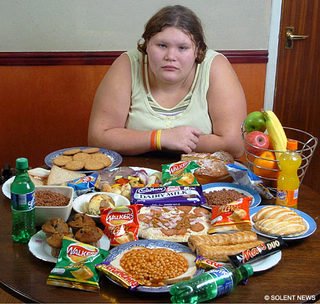Obesity and Individuals
with
Developmental Disabilities

Living Arrangements, Health, Genetics
and Individuals with DD
Living arrangements play a significant role in the rates of obesity in people with DD. Individuals living in institutions had the lowest rate of obesity while those living at home had the highest rate. In moving from institutional to community settings, individuals with DD have benefited from a less restrictive environment and increased self-determination. This change tends to result, however, in less external control over diet and activity levels for these individuals.
Other environmental factors associated with community-based care (e.g., greater opportunity to lead a sedentary lifestyle and an abundance of unhealthy food choices) may also play a major role in the development of obesity in individuals with DD. Many individuals with DD have low HDL cholesterol, and abdominal obesity. Insulin resistance syndrome and type II diabetes may be a major concern for adults with DD who live at home.
Conclusion
Overall high levels of overweight and obesity coupled with low fitness levels, inactive lifestyles, and poor nutrition in adults with DD are cause for serious concern. Not only are these individuals at risk medically, but there is also concern about the negative effect of poor physical health on their level of social integration. Overweight individuals with DD need access to effective, understandable, and easy-to-implement weight loss programs. We are currently developing a meal planning and exercise program to meet this need.
References available from Martin R.Sheehan, Ph.D. on request

